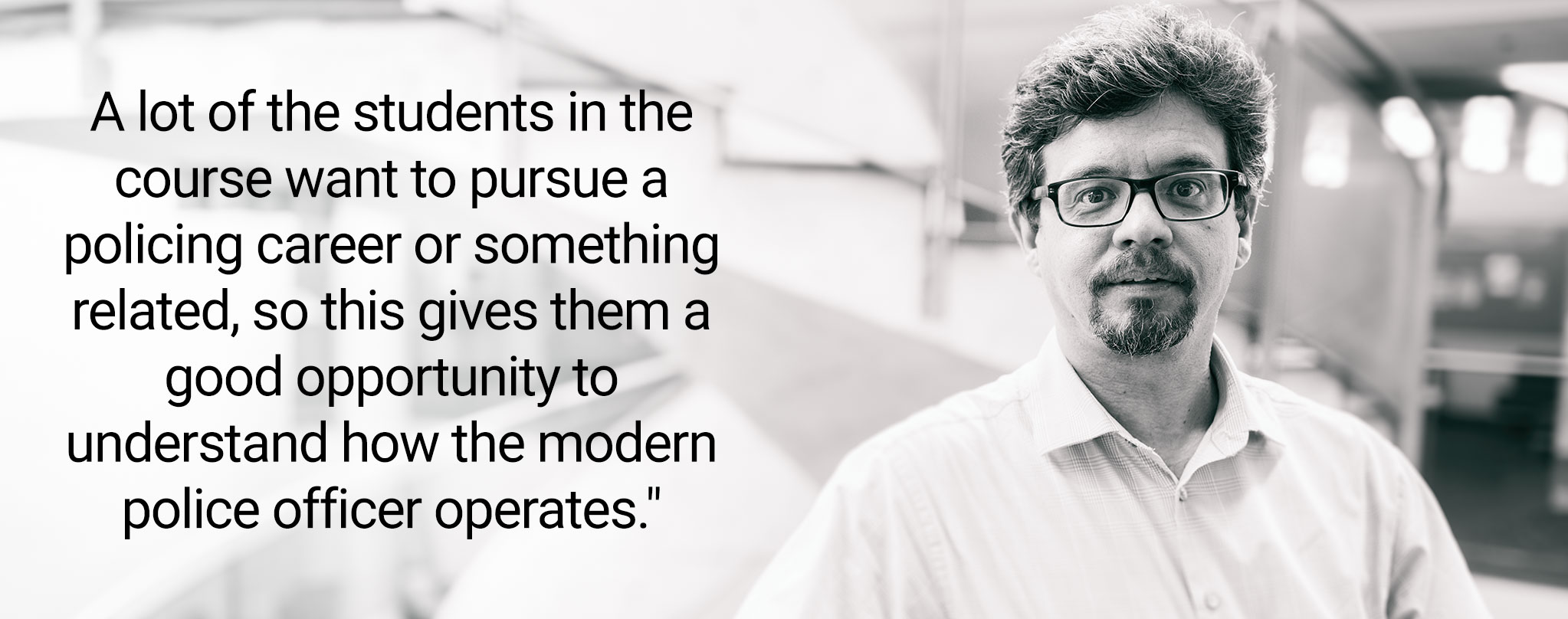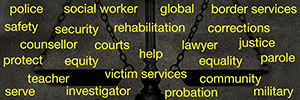- Future Students
- Current Students
- Faculty
- Staff
- Alumni
- Others
UofGH's Justice Studies students learning directly from top Ontario Chiefs of Police

This semester in Joe Couto’s Advanced Issues in Community Policing course, Justice Studies students at the University of Guelph-Humber have heard from an array of prestigious police professionals, including such well-respected guest speakers as Ottawa Chief of Police Peter Sloly, Chief of Kingston Police Antje McNeely, and Bryan Larkin, President of the Canadian Chiefs of Police and Chief of Police for the Waterloo Regional Police.
From Couto’s perspective, hearing directly from some of Canada’s most senior law enforcement professionals gives students a far richer and deeper understanding on the opportunities and challenges facing modern police forces, as well as the reality of day-to-day life on the force.
“One of the goals I always had from the beginning of the semester is: How can I bring in people that these students might not ever have a chance to meet one-on-one and ask questions?” Couto said.
“They not only learn from these speakers but they get to ask questions like, ‘What do I need to know to become your next new police recruit?’ To me, that’s the value of the course and the education offered at the University of Guelph-Humber.
“It’s not only about being able to connect them with people who can influence their thinking and outlook, but perhaps even suggest doors that can be opened as they go forward to become tomorrow’s police officers.”
Confronting the toughest challenges
Thus far, the guest speakers have offered an honest and unvarnished look at the challenges being faced in modernizing police forces in Canada and around the world.
McNeely discussed what it’s like to be a woman in a predominantly male profession, while also delving into topics she’s passionate about, like human trafficking. Sloly, meanwhile, led a fascinating discussion on racism and community policing.
“A lot of the students in the course want to pursue a policing career or something related, so this gives them a good opportunity to understand how the modern police officer operates,” Couto said.
Beyond the wisdom offered by the guest speakers, they also provide students with networking opportunities that could pay off down the line.
“Every year, I bring in people and they’re always happy to have people say, ‘Hey, can I drop you an email and get some advice?’ They’ve been there. They used to be recruits, years and years ago. They’re always happy to receive an email or an inquiry. It’s a great opportunity for students. This is another step for them to start building the networks and connections that could help them down the road.
“And for the speakers, it’s a way for them to give back to the next generation of leaders.”
A reputation among police
Couto, who in addition to teaching at the University of Guelph Humber is the Director of Government Relations and Communications for the Ontario Association of Chiefs of Police, does use his personal relationships to find great candidates to come in and speak to UofGH students.
But he also says that the strong reputation that the University has established within the law enforcement community is a major factor as well.
“I have met countless police officers who are graduates. The alumni list speaks for itself. In policing, what attracts people to the University of Guelph-Humber is that it teaches practical, real-world things about law enforcement that are very translatable into the workplace. What I mean by that is if you hire a graduate from the program, you know you’re getting somebody who has been well grounded in the basics of contemporary policing, the issues and the challenges.
“I push my students to be critical thinkers,” he added. “Not every post-secondary program is going to do that, to be honest. That’s why I’m at UofGH. We’re preparing people to be in positions to make good decisions and succeed. They’re finding our graduates attractive candidates because they’re well-rounded, they’re trained as critical thinkers, and they’re lifelong learners.
“That’s why these people agree to come here and speak.”







